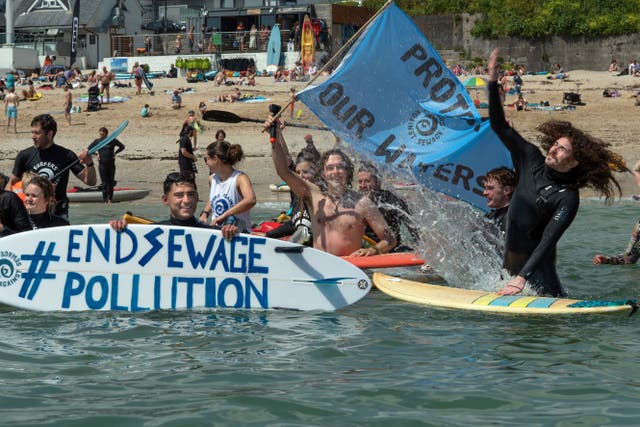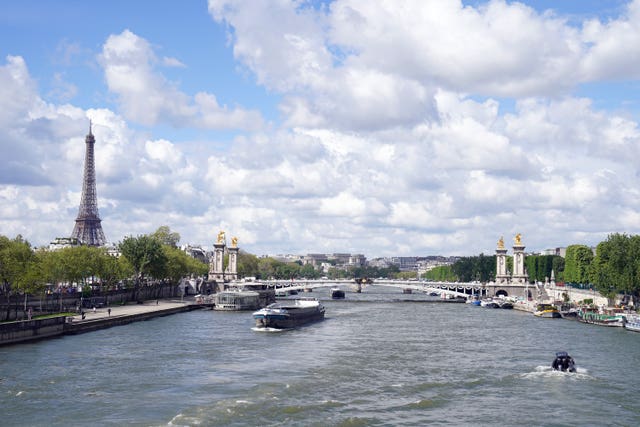UK watersports facing ‘pivotal moment’ as authorities urged to tackle pollution
Seven governing bodies have come together to form the Clean Water Sports Alliance.

Watersports in the UK face a pivotal moment because of pollution and action must be taken before it is too late, according to the head of the Royal Yachting Association.
The RYA is one of seven governing bodies representing water-based sports that have come together to form the Clean Water Sports Alliance.
The CWSA, which also includes the Angling Trust, British Rowing, British Triathlon, GB Outrigger, Paddle UK and Swim England, is calling for greater and faster action to tackle the release of sewage and other pollution into UK waterways.
Sara Sutcliffe, chief executive of the RYA, told the PA news agency: “Definitely we’ve got to beat (the drum) louder. If we were hearing the right noises, we wouldn’t have had to come together in the way we have.
“I think we’re at a pivotal moment. There has to be action from the top and I think there hasn’t been enough action being led by government and regulators, and they’ve got to take action before it’s too late.
“We have such a rich diversity of waterways that are there for the health of the nation and, if they let it get too bad, it’s going to be even more expensive to rectify. We’re doing this for future generations as much as anything.”
There has been growing criticism of the Government and water companies over the issue, which can lead to sickness among people taking part in sporting activities as well as environmental damage.
British Triathlon chief executive Ruth Daniels said: “There’s definitely more awareness but it does feel that it’s got worse, if you look at the sewage that’s being pumped out by water companies.
High-profile events have been affected, with members of the Oxford men’s crew at the Boat Race last month complaining of sickness, while dozens of people contracted norovirus at the UK leg of the World Triathlon Championship Series in Sunderland last summer.
The alliance said other events and training sessions have had to be cancelled because water has been deemed unsafe, and better quality information on water quality is one of its demands.
The body is also calling for regulators to be adequately funded to monitor, investigate and hold polluters to account, while it is advocating a change in terminology from bathing waters to recreation waters to recognise the range of activities that depend on clean water.
Sutcliffe worries that people could be put off taking part in water-based sports, saying: “It’s just shocking.

“Paddleboarding and wild swimming and all these fantastic things that are connecting people to nature, but how can we hand on heart tell them that it’s good for them when they could be getting sick just because the water quality’s not good enough?”
It is not just a problem in Britain, and doubts remain over whether the swimming leg of the Olympic triathlon in Paris will go ahead because of concerns over water quality in the Seine.
Daniels said: “Until the actual event, we won’t be 100 per cent sure about the water quality because it will be tested right up until the last minute.

“They want Parisiens to go and swim in the Seine. I would love to see that kind of investment coming back into the UK. They’ve got real-time data that they can produce around the water quality and the flow of the water, which I think is absolutely fantastic.”
The Government insists it is taking action, with a spokesperson saying: “Sewage pollution in our waters is unacceptable, which is why we have taken action to ban water bosses’ bonuses when criminal breaches have occurred, quadrupled company inspections next year, provided more funding to our water regulators and fast-tracked investment to cut spills.”
A Water UK spokesperson added: “We agree everyone should be able to enjoy our rivers and seas. The quality of our bathing waters has transformed with seven times as many beaches classed as ‘excellent’ since the 1990s.
“However, sewage spill levels remain unacceptable, so water companies in England have proposed £10 billion to reduce spills by nearly 40 per cent by 2030.”





